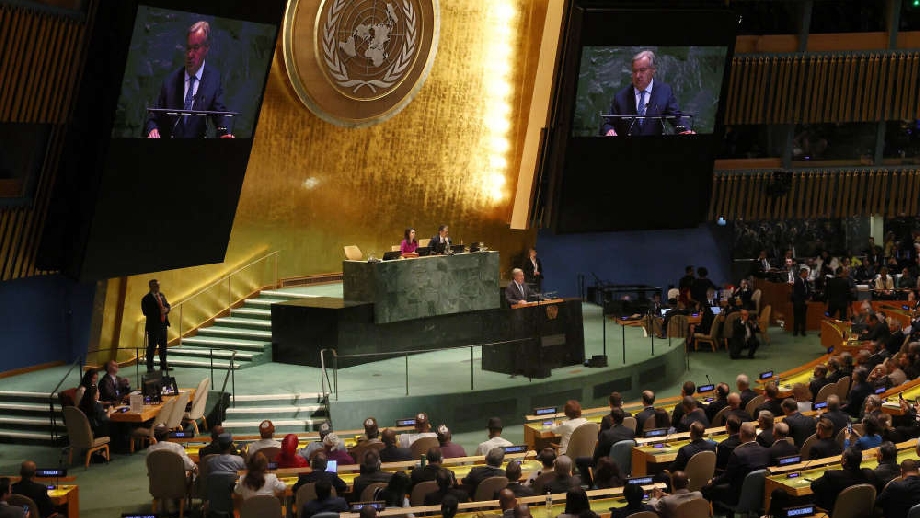
Calls for a Palestinian state and renewed commitment to a two-state solution dominated speeches at the 80th United Nations General Assembly (UNGA) this week, as leaders from Africa, Europe, the Middle East, the Americas, and the Asia-Pacific used the global stage to demand urgent action toward ending the Gaza war and resolving the decades-long Israeli-Palestinian conflict.
From Nigeria to Brazil, and from France to Jordan, leaders echoed a common refrain: peace in the Middle East cannot be achieved without the recognition of a Palestinian state alongside Israel. The General Debate of the UNGA — still ongoing at the time of this report — has become a platform for states to amplify a solution long stalled in negotiations but increasingly seen as essential in the wake of the October 7 Hamas attacks and the prolonged Israeli military response in Gaza.
African Voices
Nigeria’s Vice President Kashim Shettima told delegates that “a two-state solution remains the most dignified path to lasting peace for the people of Palestine.” He framed Nigeria’s support as part of its wider call for global reforms, including a permanent African seat on the UN Security Council.
South African President Cyril Ramaphosa stressed that peace in the Middle East must be “comprehensive, just and lasting,” explicitly grounded in the two-state framework. Morocco’s Prime Minister Aziz Akhannouch said the formula was “the only path” and urged the UN to set a timeline for Palestinian statehood.
Middle Eastern Leaders
King Abdullah II of Jordan used his speech to push for an “immediate ceasefire” and recommitment to a Palestinian state as the only viable solution. Turkish President Recep Tayyip Erdoğan went further, thanking countries that recently recognized Palestine and urging others “to act without delay.” Qatar’s Emir Sheikh Tamim bin Hamad Al Thani also backed enforcing the two-state plan, warning that further delay would deepen instability across the region.
Europe and Beyond
European leaders placed Palestine at the center of their addresses. French President Emmanuel Macron reaffirmed Paris’ recognition of a Palestinian state and linked it to a renewed two-state roadmap. Spain’s King Felipe VI condemned the “massacre” in Gaza and pressed for a two-state track. Belgium’s Prime Minister Bart De Wever described the approach as “bruised but not dead,” urging the UN to uphold it.
In the Americas, Brazil’s President Luiz Inácio Lula da Silva declared that Israelis and Palestinians “will only survive with an independent [Palestinian] State.” From the Asia-Pacific, Australia’s Prime Minister Anthony Albanese tied Canberra’s recognition of Palestine to the UN’s founding ideals, saying the two-state solution must not be abandoned.
UN-Week Recognitions
Beyond the speeches, several countries used UN Week in New York to formally recognize the State of Palestine. France, the United Kingdom, Canada, Australia, Portugal, Belgium, Luxembourg, Malta, Monaco, and Andorra were among those announcing or reaffirming their recognition, joining a high-level conference convened to rally support for a two-state solution. Diplomats described the moment as a coordinated signal that momentum was shifting toward broader recognition.
An Ongoing Debate
The General Debate of UNGA 80 continues through the week, with more than 150 heads of state and government expected to speak. But the early interventions have underscored one point of rare consensus: from Africa’s largest economies to Europe’s oldest monarchies, the world’s leaders are increasingly aligning on the view that only a two-state solution can resolve the Middle East conflict and end cycles of war.


